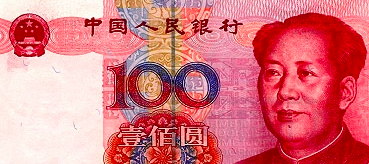The EU and China on Wednesday concluded in principle their negotiations for a Comprehensive Agreement on Investment (CAI).
The EU said China has committed to a greater level of market access for European investors than ever before, including some new important market openings.
It said China is also making commitments to ensure fair treatment for EU companies so they can compete on a better level playing field in China, including disciplines for state owned enterprises, transparency of subsidies and rules against the forced transfer of technologies.
The EU said that for the first time, China “has also agreed to ambitious provisions on sustainable development, including commitments on forced labour and the ratification of the relevant ILO fundamental Conventions.”
The deal follows a call between Chinese President Xi Jinping and European Commission President Ursula von der Leyen, European Council President Charles Michel and German Chancellor Angela Merkel on behalf of the Presidency of the EU Council, as well as French President Emmanuel Macron.
The EU and China will now working on finalising the text of the agreement, which will need to be legally reviewed and translated before it can be submitted for approval by the EU Council and the European Parliament.
von der Leyen said: “Today‘s agreement is an important landmark in our relationship with China and for our values-based trade agenda.
“It will provide unprecedented access to the Chinese market for European investors, enabling our businesses to grow and create jobs.
“It will also commit China to ambitious principles on sustainability, transparency and non-discrimination.
“The agreement will rebalance our economic relationship with China.”
The EU said rules negotiated in the agreement “set a high benchmark in terms of transparency, level playing field, market access commitments and sustainable development.”
It said China has made significant commitments on manufacturing, the most important sector for EU investment in China.
“Manufacturing makes up more than half of total EU investment – including 28% for the automotive sector and 22% for basic materials,” said the European Commission.
“This includes production of electric cars, chemicals, telecoms equipment and health equipment, among others.
“China is also making commitments for EU investments in various services sectors, such as cloud services, financial services, private healthcare, environmental services, international maritime transport and air transport-related services.
“In the sectors covered, European business will gain certainty and predictability for their operations as China will no longer be able to prohibit access or introduce new discriminatory practices.
“The CAI will help to level the playing field for EU investors by laying down very clear rules on Chinese state-owned enterprises, transparency of subsidies, and prohibiting forced technology transfers and other distortive practices.
“The agreement also includes guarantees that will make it easier for European companies to obtain authorisations and complete administrative procedures.
“It also secures access to China’s standard setting bodies for European companies …”
